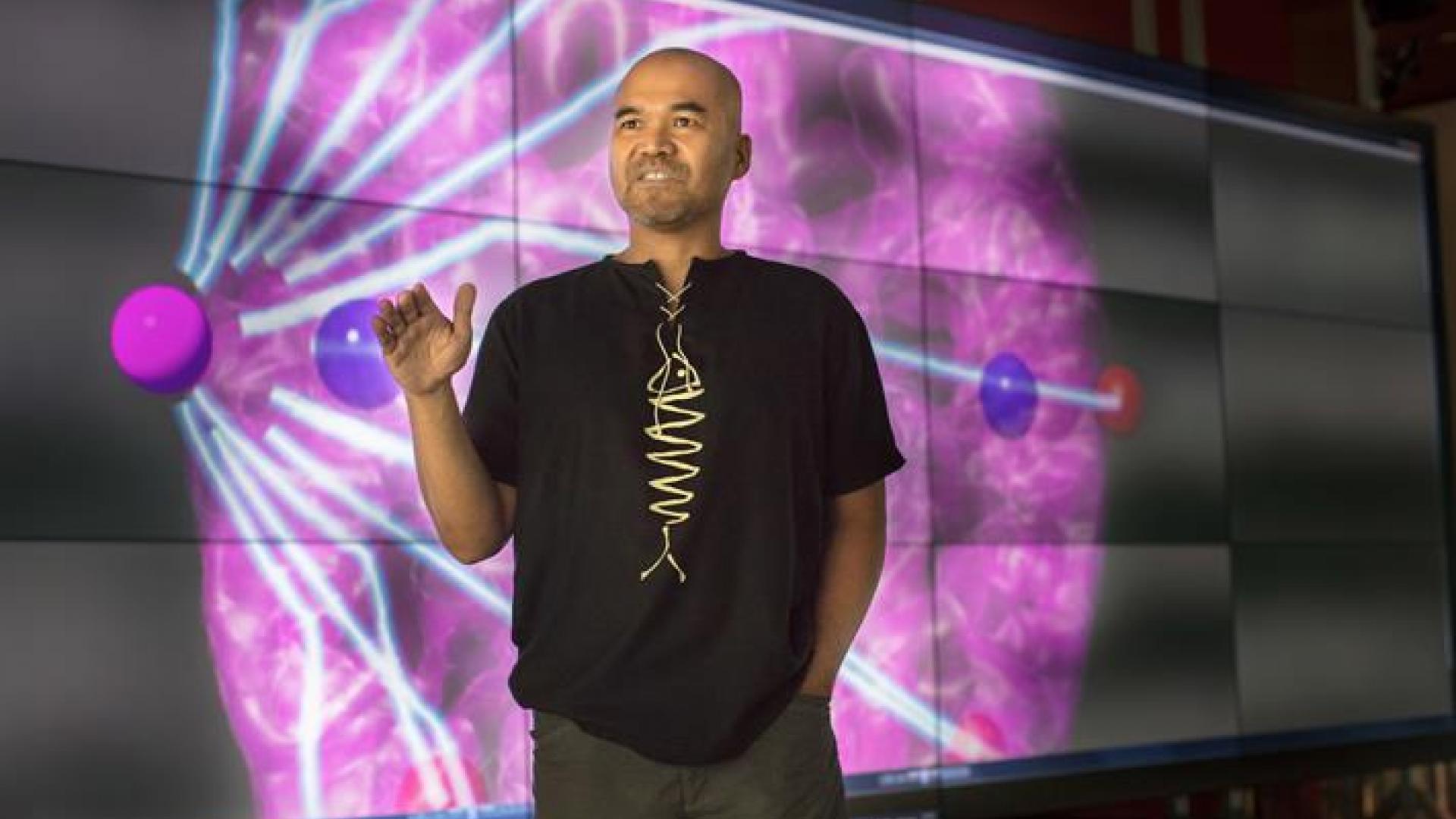Our busy brains send signals back and forth across our 86 billion neurons as we go about our daily activities. Discovering exactly what these signals do seems like an impossible task, but Professor Hernando Ombao believes that biostatistics, combined with other tools in data science, could hold the answer.

Hernando is a Professor of Statistics at King Abdullah University of Science and Technology (KAUST) in Saudi Arabia. Recognising the potential for using mathematics to study diseases and find cures led him to make the switch from actuarial science to biostatistics as a graduate student in the US. His interest in brain research was later piqued when Professor Jonathan Raz at the University of Michigan showed a picture of brain signals from a cat that was anaesthetised and undergoing surgery. “I thought, wow, these look quite interesting, and then it went from there,” he says. “Even to this day, the methods that I developed are for modelling time series data, meaning data collected over time, and the applications have been on brain science.”
One area of interest for Hernando and his team is epilepsy. They use electroencephalograms (EEG) which are time series signals that measure electrical activity in the brain. This allows them to see how a seizure that starts in one part of the brain can affect spread and connectivity patterns across channels in the entire brain network. He explains, “Seizure is an extreme event. All of a sudden, you observe abnormally large amplitudes in high frequency oscillations. Neurologists want to see how an abnormality on a reference signal in one part of the brain, where we think that seizure initiates, impacts the entire brain network.”
To examine this dependence in the brain network, Hernando’s team focuses on oscillations in the brainwave patterns and looks at possible interactions between the high- and low-frequency oscillations. Then, they check if, for example, an increase in the amplitude of a high-frequency oscillation could excite or inhibit activity in other parts of the brain network. Using KAUST’s high–performance computing clusters they analyse this dependence or interactions between channels in the EEG data. “Some mental and neurological diseases are characterised by disruptions in brain connectivity,” he says. “Brain connectivity can be a good biomarker for different types of neurological diseases like OCD, schizophrenia, and dementia. So, we try to study the impact of altered connectivity on the brainwaves, and the impact of that on behaviour and diseases.”

Collaborations with colleagues from statistics, applied mathematics, computer science, and bioengineering at KAUST have proved important for Hernando’s work. He also has strong collaborations with neuroscientists in the US where he was a professor for 18 years – at Pittsburgh, Illinois, Brown and University of California Irvine. In addition, he serves on a panel that evaluates grant proposals for the US National Institutes of Health. This makes him appreciate all the more KAUST’s attractive baseline funding where researchers are given the financial support they need every year for salaries and research expenses. He says, “KAUST gives you that security so you can really think long-term and build work that has a lasting impact.” With the resources provided by KAUST, he can strengthen his overseas collaborations by visiting people regularly and extending invitations too.
Hernando comments that in addition to the excellent funding at KAUST “our best resources are our students and postdocs”. He’s proud of the achievements of the high-calibre students who have worked in his group, many of whom have won awards in international competitions and gone on to sought-after positions in top universities worldwide.
These excellent resources mean that researchers at KAUST have the opportunity to tackle global challenges. Neurological diseases like Alzheimer’s are an increasing burden on society, and Hernando is a statistical consultant for AI-Mind, an EU-funded consortium developing AI tools to assist with their diagnosis and treatment. He says, “The vision of this group is to make this technology and framework transferable to other countries, and in particular, to countries that don’t have the same resources as richer countries.”
Hernando enjoys the international environment at KAUST and says that when they invite students and researchers to come to visit, many want to stay. They see how friendly the people are and the opportunities to balance your work and social life – there’s camping in the desert, trips to historical places like AlUla, or Hernando’s favourite, a weekly trip to the open market of Al Balad on KAUST’s free bus. Reflecting on his own decision to move to KAUST, he says, “I was drawn by the idea of trying to build a group, where you have the resources to carve something out. That to me was really very exciting.”
Featured employer
KAUST is devoted to finding solutions for some of the world’s most pressing scientific challenges in the areas of food, water, energy and the environment.
See all current vacanciesDiscover related jobs
Featured employer
KAUST is devoted to finding solutions for some of the world’s most pressing scientific challenges in the areas of food, water, energy and the environment.
Visit employer pageFeatured researcher
Hernando Ombao is a professor of statistics and principal investigator of the KAUST Biostatistics Group. His main area of research is on developing statistical models and methods for analyzing high dimensional complex biological processes.